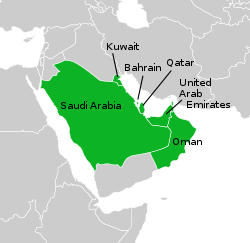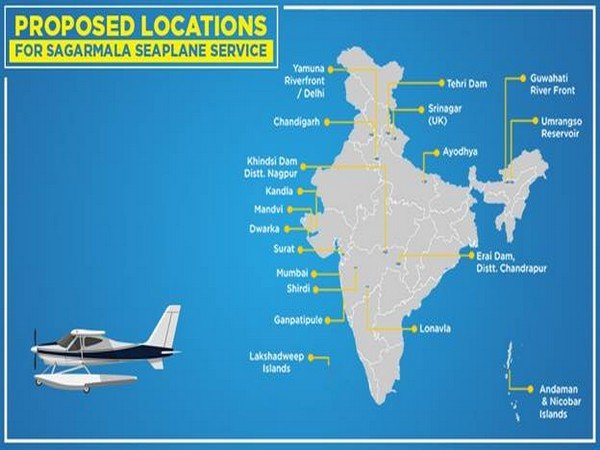Given below are the daily current affairs for 06th Jan 2021. You can take the daily current affairs quiz here for free.
HEALTH
Indigenously Developed DNA Vaccine Candidate
Context:
DBT-BIRAC supported indigenously developed DNA Vaccine Candidate by Zydus Cadila, approved for Phase III clinical trials.
Details:
- India’s first indigenously developed DNA vaccine candidate against COVID-19, ZyCoV-D, by Zydus Cadila has been approved by the Drugs Controller General of India (DCGI), for the conduct of Phase III clinical trials.
- The candidate has been supported by the National Biopharma Mission (NBM) under the aegis of BIRAC and the Department of Biotechnology, Government of India.
- After phase I and II trials, Zydus Cadila’s interim data indicated that the vaccine is safe and immunogenic when three doses were administered intradermally.
- Based on the recommendations of the Subject Expert Committee, which reviewed the interim data, the DCGI has accorded permission for conducting Phase-III clinical trial in 26,000 Indian participants.
BIRAC
- Biotechnology Industry Research Assistance Council (BIRAC), set up under the Dept. of Biotechnology (DBT), is supporting the vaccine manufacturing platform establishment under the National Biopharma Mission.
ECONOMY
Global, India output set to expand in FY22: World Bank
What’s in News?
World Bank has released its Global Economic Prospects (GEP) report.
Global Economic Prospects (GEP) report:
- GEP is a World Bank Group flagship report.
- It examines global economic developments and prospects, with a special focus on emerging markets and developing economies.
- It is issued twice a year, in the months of January and June.
- The January edition includes in-depth analyses of topical policy challenges.
- The June edition contains shorter analytical pieces.
Details:
- As per the latest GEP, global economic output is projected to grow by 4% in 2021 assuming widespread roll-out of a COVID-19 vaccine throughout the year.
- This projection is still 5% below pre-pandemic levels.
- The global recovery has been dampened by the resurgence of the coronavirus.
- However, the global recovery is expected to strengthen as confidence, trade and consumption start improving, supported by vaccinations.
India:
- India is expected to grow at 5.4% in the fiscal year 2021-22 and 5.2% in fiscal 2022-23 after an expected contraction of 9.6% in fiscal 2020-21.
- Owing to a sharp decline in household spending and private investment, it is expected that India’s economy would contract in the current fiscal.
- There was severe income loss in the informal sector which accounts for four-fifths of employment.
- However, recent data indicated that recovery in manufacturing and services was gaining momentum.
- India’s government debt is expected to rise by 17 percentage points of GDP.
- Private sector debt is also expected to rise sharply.
Concerns:
- Those with the lowest incomes were worst hit by the downturn and would likely take the longest to regain jobs, healthcare, vaccines and so forth in the post-COVID economy.
- There has been a massive increase in global debt with emerging market and developing economies’ government debt set to increase by 9 percentage points of GDP in 2020.
Way forward:
- Key elements to the strength of the economic recovery would be investments that embrace the changed economic environment and an ability to reduce inequality.
- The governments, households and firms must respond to the new economic realities such as:
- Protecting the most vulnerable.
- Roll out supporting policies that allow capital, labour, skills and innovation to shift to new purposes such as the green sectors.
INTERNATIONAL RELATIONS
Gulf leaders sign deal to end years-long dispute
Context:
Gulf leaders signed a “solidarity and stability” deal after leaders of Saudi Arabia and Qatar publicly embraced, bringing Qatar back into the regional fold after a three-year-long rift.
Background:
- Since June 2017, Qatar, a tiny Gulf country with rich gas reserves, has faced a tight blockade from its neighbours, Saudi Arabia, Bahrain and the UAE, which are backed by Egypt.
- Saudi Arabia had led a coalition of countries in the Gulf and beyond to cut ties and transport links with Qatar in June 2017, charging that it was too close to Iran and backed radical Islamist groups.
- In that year, Bahrain, Saudi Arabia, UAE had officially cut diplomatic ties with Qatar.
Details:
- A breakthrough has been reached in Qatar’s three-year-old dispute with Saudi Arabia and three other Arab countries and an agreement to end their rift has been signed.
- Riyadh overnight re-opened its land, sea and air borders to Doha.
- The Saudi crown prince said that there was a desperate need to unite efforts to promote the region and to confront challenges that surrounded them, specifically, the threats posed by the Iranian regime’s nuclear and ballistic missile Programme and its plans for sabotage and destruction.
Gulf Cooperation Council:
- The GCC is a regional grouping of six countries surrounding the Persian Gulf i.e., Bahrain, Kuwait, Oman, Qatar, Saudi Arabia, and the United Arab Emirates.
- Its headquarters is located at Riyadh, Saudi Arabia
- It is a political and economic union consisting of all Arab states of the Persian Gulf, except for Iraq.

MISCELLENOUS
Two-day Asian Waterbird Census off to a flying start
What’s in News?
The two-day Asian Waterbird Census-2020 commenced in Andhra Pradesh under the aegis of experts from the Bombay Natural History Society (BNHS).
- The Asian Waterbird Census 2020 covered at least two dozen sites, including Coringa Wildlife Sanctuary, Kolleru Lake and Krishna Sanctuary.
Asian Waterbird Census:
- The Asian Waterbird Census (AWC) is part of the global International Waterbird Census carried out each January as a voluntary activity.
- The AWC was initiated in 1987 in the Indian subcontinent and since has grown rapidly to cover the major region of Asia, from Afghanistan eastwards to Japan, Southeast Asia and Australasia.
- The AWC is an integral part of the global waterbird monitoring programme, the International Waterbird Census (IWC) coordinated by Wetlands International.
- It runs in parallel with other regional programmes of the International Waterbird Census in Africa, Europe, West Asia, the Neotropics and the Caribbean.
- The survey would help understand
- The changes to wetland systems,
- Change in the migratory pattern of birds,
- Impact of climate change.
- The information would be used to promote the designation and management of protected areas, Ramsar Sites, Important Bird and Biodiversity Areas, and so on.
PM inaugurates Kochi-Mangaluru LNG pipeline
What’s in News?
The Prime Minister inaugurated the 450-km Kochi-Koottanad-Mangaluru LNG (liquefied natural gas) pipeline.
Details:
- The facility is part of the government’s “one nation, one gas grid” policy.
- This is as part of efforts to make India a natural gas-based economy.
- The government plans to increase the share of natural gas in the energy sector from the present 6% to 15% by 2030.
- 10,000 more CNG (compressed natural gas) stations would be opened and several lakh PNG (piped natural gas) household connections given in the coming days.
- The Kochi-Mangaluru pipeline would provide another 21 lakh PNG connections.
Sagarmala Seaplane Services
Context:
The Ministry of Ports, Shipping & Waterways is kicking off the Sagarmala Seaplane Services (SSPS).
About Sagarmala Seaplane Services:
- The Ministry is commencing operations of the Seaplane services, on select routes, under a Special Purpose Vehicle (SPV) framework through prospective airline operators.
- The project execution and implementation would be through the Sagarmala Development Company Ltd (SDCL), which is under the administrative control of the Ministry.
- The proposed locations under the Hub & Spoke Model are given in the image below:

- One such Seaplane Service is already in operation between Kevadia and Sabarmati Riverfront in Ahmedabad, inaugurated in October 2020.
- To provide connectivity and easier accessibility to remote locations, SDCL is exploring plans to leverage the potential of the vast coastline and numerous water bodies/rivers across India by commencing seaplane operations.
- Sea Plane will utilize the nearby water bodies for take-off and landing and thus connect those places in a much economical way as conventional airport infrastructure like a runway and terminal buildings are not required for seaplane operations.
- Benefits of seaplane operations:
- Provide faster and comfortable transportation across the nation.
- Improve air connectivity to tourist/religious destinations.
- Boost domestic and international tourism.
- Save travel time to remote/hilly areas.
- Boost business activities in the regions.
TRIFOOD Parks
TRIFOOD Parks to be set up in Madhya Pradesh.
- It is a joint initiative of TRIFED (under the Ministry of Tribal Affairs) and the Ministry of Food Processing.
- TRIFOOD Parks are food processing centres aiming at promoting value addition to minor forest produce.
- It was launched under the Van Dhan Yojana in 2020.
- The parks procure raw materials from the Van Dhan Kendras and process them to be sold across the country through Tribes India outlets.
- The minimum support price for minor forest produce is fixed by the Tribal Affairs Ministry and it is revised every three years by a pricing cell constituted under the Ministry.
Indian scientific expedition to Antarctica
Context:
40th Indian scientific expedition to Antarctica launched.
Details of the expedition:
- The 40th expedition journey will be flagged off from Goa on January 5, 2021, with 43 members onboard.
- The chartered ice-class vessel MV Vasiliy Golovnin will make this journey and will reach Antarctica in 30 days.
- After leaving behind a team of 40 members, it would return to India in April 2021.
- On return, it will also bring back the winter team of the preceding trip.
- The scientific and logistic activities of the 40th Indian Antarctic expedition are limited due to the existing challenges associated with the COVID-19 pandemic.
- The focus is to support the ongoing scientific projects on climate change, geology, ocean observations, electric and magnetic flux measurements, environmental monitoring; resupplying of food, fuel, provisions and spare; and accomplishing the return of the winter crew.
Indian Antarctic Programme:
- The Indian Antarctic expeditions began in 1981.
- The first trip comprised a team of 21 scientists and support staff led by Dr SZ Qasim.
- After a humble beginning, the Indian Antarctic programme has built three permanent research base stations in Antarctica—named Dakshin Gangotri, Maitri, and Bharati.
- As of today, India has two operational research stations in Antarctica named Maitri and Bharati.
- The National Centre for Polar and Ocean Research (NCPOR), Goa, manages the entire Indian Antarctic program.
Congratulations!
You have made it to the end of today’s current affairs.
Take this free quiz right now to test what you learnt today – Click here

